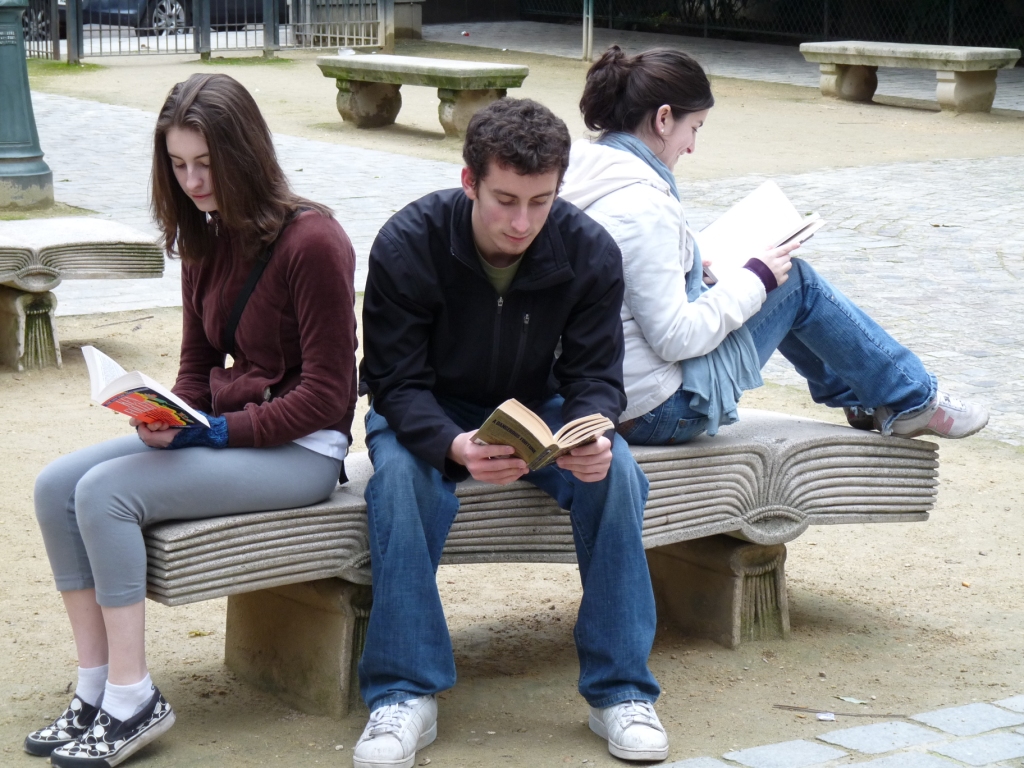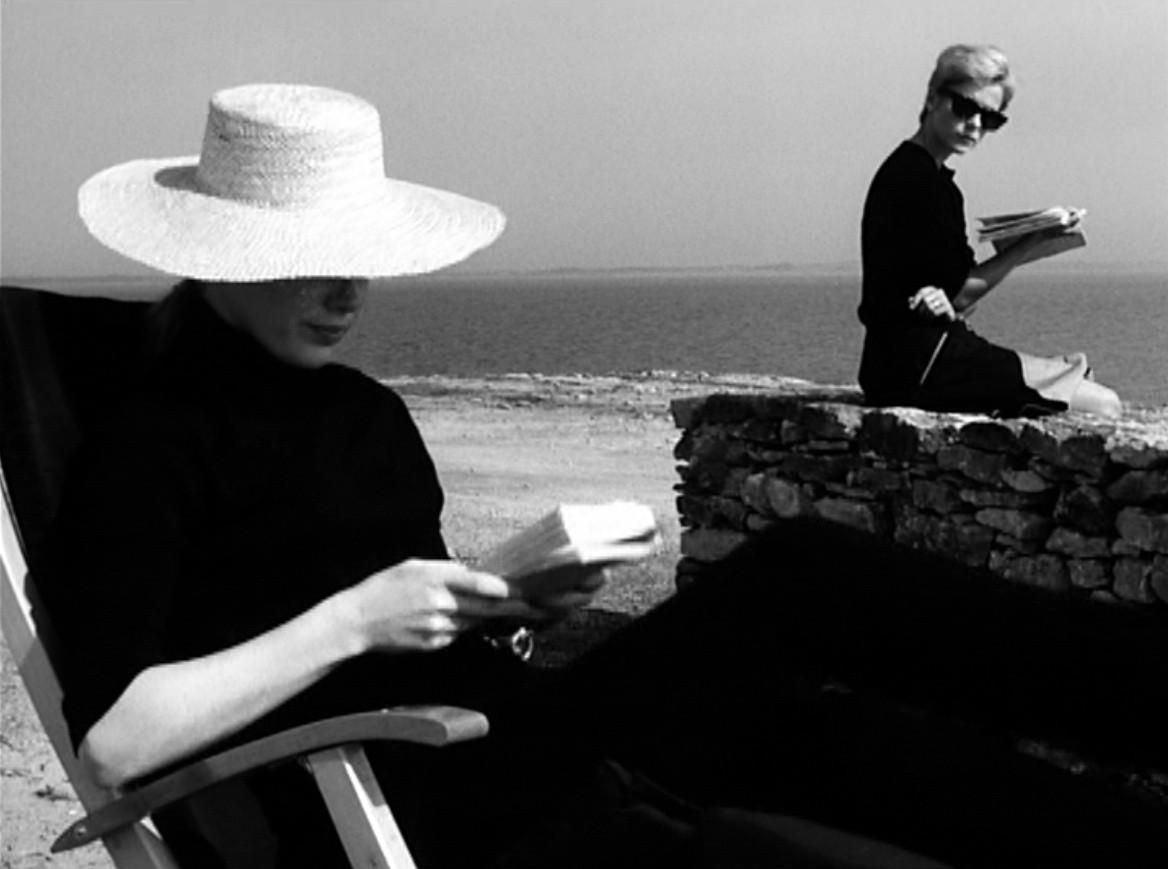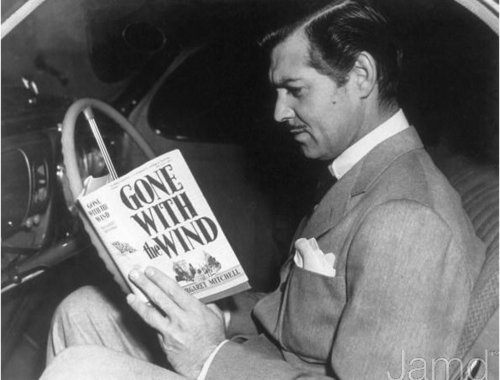I've been seeing pictures of book benches all over the web and the idea intrigued me. What's more perfect than a book bench for a quiet couple of hours of reading in the park, right? That's what I thought too. Here are some fun examples I particularly enjoyed. Do you know of any others?
This one's very popular in Paris, France
"Book Bench" by Geri Connelly at the Phalen Poetry Park in St. Paul, Minnesota.
"Non-Fiction Book Bench" at the Cerritos Civic Center in Cerritos, California
The city of Istanbul is promoting reading with book benches. Benches that look like an open book have been placed around the city and on each bench which carry poems from 18 famous Turkish poets.
Wednesday, August 29, 2012
Sunday, August 26, 2012
Review: The Birth of Venus by Sarah Dunant
 Alessandra Cecchi is not quite fifteen when her father, a prosperous cloth merchant, brings a young painter back from northern Europe to decorate the chapel walls in the family’s Florentine palazzo. A child of the Renaissance, with a precocious mind and a talent for drawing, Alessandra is intoxicated by the painter’s abilities. But their burgeoning relationship is interrupted when Alessandra’s parents arrange her marriage to a wealthy, much older man. Meanwhile, Florence is changing, increasingly subject to the growing suppression imposed by the fundamentalist monk Savonarola, who is seizing religious and political control. Alessandra and her native city are caught between the Medici state, with its love of luxury, learning, and dazzling art, and the hellfire preaching and increasing violence of Savonarola’s reactionary followers.
Alessandra Cecchi is not quite fifteen when her father, a prosperous cloth merchant, brings a young painter back from northern Europe to decorate the chapel walls in the family’s Florentine palazzo. A child of the Renaissance, with a precocious mind and a talent for drawing, Alessandra is intoxicated by the painter’s abilities. But their burgeoning relationship is interrupted when Alessandra’s parents arrange her marriage to a wealthy, much older man. Meanwhile, Florence is changing, increasingly subject to the growing suppression imposed by the fundamentalist monk Savonarola, who is seizing religious and political control. Alessandra and her native city are caught between the Medici state, with its love of luxury, learning, and dazzling art, and the hellfire preaching and increasing violence of Savonarola’s reactionary followers. A colleague gave me this book saying that I was going to love it and she was right. From the very first pages it was obvious that this was not your ordinary historical fiction, it really couldn't be with a nun having a tattoo of a serpent on her torso, and I looked forward to finding out how that came about.
Freedom, independent thought and pursuit of learning are prominent themes in this novel and it was interesting to see them explored in the context of Renaissance Florence. I'd always assumed that with Florence being the cradle of art and learning of that time it was a relatively progressive society where curiosity and education were encouraged for anybody who had the means to pursue it, but this novel paints a picture of a society where women were not encouraged to pursue much beyond getting married and birthing children, and a passion for learning was considered a shameful shortcoming, one to be kept a secret, a sin even. That was very surprising to me, considering how different was the world of Milan in the same period as portrayed in Leonardo's Swans by Karen Essex, with Isabella d'Este openly patronizing artists and collecting art. I could hardly believe both books were set in the same era and in what we now know as the same country.
The story was full of unexpected plot twists, from the problems with Alessandra's marriage to her relationship with the painter, whose name we never find out. They kept the story moving but for me they weren't the most interesting part. Instead I preferred Alessandra's passion for art and literature, her willingness to take risks to pursue painting, and the effect that practicing her art has on her. I particularly enjoyed the section where she painted her way through the darkest depression saying that that was how she healed herself. Moreover, it was fascinating to see such literary erudition in a person so young. I am twice Alessandra's age and I haven't read the Divine Comedy even once, let alone Aristotle or Socrates. Having read a number of novels set in centuries past I'm inclined to believe that this was not unusual for nobility of that time, and every time I read about characters like Alessandra I can't help but be impressed.
What I had trouble with was character development. Majority of secondary characters were one-dimensional and sometimes even the key traits of main characters weren't all that prominent until they were stated. For example, there is much talk about Alessandra wanting to be free from the constant supervision she had in her parents' house, but I never got that vibe from her until it was expressed for the first time. It actually took me by surprise, I thought she seemed quite content, her antagonistic relationship with her brothers notwithstanding. My favorite characters in this book were Alessandra's mother, her slave Erila, and her husband Cristoforo. They had histories, secrets, and there was an energy about them that made me want to learn more about them. They were also the ones who allowed the humanity of Alessandra's character to be revealed to a greater extent, improving the novel in the process.
The story unfolds against the backdrop of a religious zealot taking hold of Florence with his teachings and the effects this has on the city. This situation and how it changes Alessandra's life and prospects is an interesting commentary on what can happen in a society if a charismatic leader wins over increasingly greater crowds and how the social landscape can change as a result.
This is an intriguing story driven by characters with plenty of secrets and I would recommend it to anyone who enjoys historical fiction with a twist.
Thursday, August 23, 2012
You know what happened today? I realized that today is Thursday and I totally missed my Wednesday post. I have a really good excuse though. No, my computer didn't crash (fingers crossed that won't ever happen) and the weather is fine. My excuse is that I started reading The Hunger Games and completely lost track of time. Fortunately there was a pot pie in the freezer otherwise the family would've gone hungry. So yes, I'm on the Katniss wagon (finally!) and am spending every minute reading because I just can't put the book down. You'll forgive me, right?
Sunday, August 19, 2012
Review: Still Alice by Lisa Genova
 Alice Howland - Harvard professor, gifted researcher and lecturer, wife, and mother of three grown children - sets out for a run and soon realizes she has no idea how to find her way home. She has taken the route for years, but nothing looks familiar. She is utterly lost. Medical consults reveal early-onset Alzheimer's. Alice slowly but inevitably loses memory and connection with reality, told from her perspective. She gradually loses the ability to follow a conversational thread, the story line of a book, or to recall information she heard just moments before. Genova's debut shows the disease progression through the reactions of others, as Alice does, so readers feel what she feels - a slowly building terror.
Alice Howland - Harvard professor, gifted researcher and lecturer, wife, and mother of three grown children - sets out for a run and soon realizes she has no idea how to find her way home. She has taken the route for years, but nothing looks familiar. She is utterly lost. Medical consults reveal early-onset Alzheimer's. Alice slowly but inevitably loses memory and connection with reality, told from her perspective. She gradually loses the ability to follow a conversational thread, the story line of a book, or to recall information she heard just moments before. Genova's debut shows the disease progression through the reactions of others, as Alice does, so readers feel what she feels - a slowly building terror.As highly recommended as this book is and as much as I wanted to read it, it took me a good while to muster the courage to actually do it. I was intimidated by the subject because I lived for a year with a family where the elderly grandmother had Alzheimer's, and even though there was much I didn't understand I witnessed first-hand how traumatic her condition was for the entire family. Finally I decided to just go for it, and when the novel was over I sat there for a while, heartbroken, not knowing where to begin thinking back on it like I usually do after finishing a book. There was so much there. There was Alice's love for her family, her bitter-sweet feelings for her husband, her fear of losing herself, of losing all the time she thought she had. There was her husband's pain and the decisions he had to make, her children's fear and strength, the relationships between them all, and the impact of Alice's diagnosis. All this tore at me and demanded attention, all the questions that stemmed from the story being told by a person with Alzheimer's begged to be answered, and I couldn't begin anything else for several days because I was still living in Alice's world, trying to come to terms with a question that resonated with me because reading, books and words are an enormously important part of my life, just like they were for Alice - how does one cope with the knowledge that meaningful reading is no longer possible?
How does the author do this in a volume of less than 300 pages? It's simple, really. Lisa Genova has a gift. She does it with writing like this:
"She sat in the passenger seat and waited for John to say something. But he didn't. He cried the whole way home."What else does the reader need to understand the depth of feelings, the gravity of the situation? Nothing at all, it's all there in three short sentences.
Another aspect that made the book work is the authenticity of everyday feelings and surroundings. I don't know this for a fact but I think that Ms. Genova is a runner, and I think she has a house somewhere at the beach in New England. I think that she has a passion for the world of academia and a complicated parent-child relationship in her life in one way or another. I think she drew on all those parts of her own life and experiences in crafting Alice's story and through her own familiarity she made the story even more personal than it already is.
I cried while I read this novel. I cried for Alice, for her husband and for their children. I cried for the losses of memories, dignity, conversations and truly meaningful time together. I also laughed through tears because of Alice's irrepressible spirit, intellect and sense of humor that shone through till the very end. This book may not affect you as it did me, there is a lot to be said about timing after all. I thought it was excellent, heartbreaking but truly excellent, and I highly recommend it.
P.S. I have not been able to use the word "thingie" without immediately looking for a more articulate alternative for weeks now. Thought you should know.
Wednesday, August 15, 2012
People Read, And Here's Proof
One of the sites I really enjoy visiting is Women Reading, a tumblr that showcases pictures of, well, women reading, and has a varied selection of classical and modern art, painting and photography. It gets updated at least once a day and the subjects are often intriguing in the very least, so it's perfect for adding to your Reader feed.
Another good one is men reading, although it doesn't get updated as regularly as it used to. It is much more casual, with mainly photos and art prints but the archives are just as fun nonetheless.
I highly recommend both of these for an hour of reader-tainment (you were forewarned about the making up of words) and am heading over to Women Reading myself. See you Sunday!
Another good one is men reading, although it doesn't get updated as regularly as it used to. It is much more casual, with mainly photos and art prints but the archives are just as fun nonetheless.
I highly recommend both of these for an hour of reader-tainment (you were forewarned about the making up of words) and am heading over to Women Reading myself. See you Sunday!
Sunday, August 12, 2012
Review: Summer Knight by Jim Butcher
 Private detective/wizard-for-hire Harry Dresden is tasked with solving a mystery that leaves the fate of the entire world, and his soul, handing in the balance.
Private detective/wizard-for-hire Harry Dresden is tasked with solving a mystery that leaves the fate of the entire world, and his soul, handing in the balance. Over the course of the last three books of the Dresden Files series I've come to expect Jim Butcher to give me something different every time, not just in terms of Dresden's adversaries and allies but also in terms of the difficulty of his task and the character arc. I've come to look forward to finding out what supernatural species was going to come up on the stage next. I've come to relish the smart-alec and often beat up but never beatdown Harry. I thought I had the general system all worked out. And then Butcher surprised me.
What surprised me most was the emotional journey on which the author took Harry. The last time I saw this level of character development in a fantasy series was in the Abhorsen Chronicles and I was glad to discover a similar depth in the Dresden Files. One of my favorite things about Butcher's writing in this novel is how well he showed the extent of Harry's depression and downright desperation. Grave Peril didn't end very well for the wizard and from the very first pages the fallout was obvious in everything from dark sarcasm to the state of Harry's life. Things started to turn around so gradually that I almost missed it, but I sure was glad to see it happen. After all, who wants the protagonist to be semi-suicidal for the nearest foreseable future, right?
The story has grown too. All the familiar elements were there but this time every aspect was taken to the next level - the villain is the most powerful being Harry has battled so far, the life of the entire planet is at stake, and the guys who should be helping are leaving Dresden out in the cold. Fortunately it wasn't just about the circumstances. This time around experience and the willingness to take a risk weren't going to be enough, and fire and wind magic was useless against beings with unlimited power. This time it was as much about keeping at it despite a seemingly no-win situation, not falling apart because of guilt and pain over the past, and being able to tell who is a friend and who is a foe waiting to put a deadly spell on you.
If you're wondering what supernatural species is front and center in this novel you're in for a treat: this story is all about the fey. You know, Summer and Winter courts, Queens, bargains one's better off not making. It was dangerous and a little disturbing but, true to the Dresden Files ways, a lot of fun.
Reading this book was like starting to see what the puzzle will look like after having only the simpler pieces to work with. I look forward to seeing more of the big picture.
Thursday, August 9, 2012
The Reader aka Young Woman Reading by Pierre Auguste Renoir
Oil on canvas
1877
25 3/4 x 21 1/2 in
Currently in the private Collection of Paul G. Allen
When Renoir painted La Liseuse he was about to participate in his final Impressionist exhibition, after which he would return to the official Salon and finally enjoy lasting financial success. By 1877, Renoir had nearly reached the place in his career where he could paint portraits wholly because he loved to do so, not merely because portraits are much easier to sell than landscapes.
1877
25 3/4 x 21 1/2 in
Currently in the private Collection of Paul G. Allen
When Renoir painted La Liseuse he was about to participate in his final Impressionist exhibition, after which he would return to the official Salon and finally enjoy lasting financial success. By 1877, Renoir had nearly reached the place in his career where he could paint portraits wholly because he loved to do so, not merely because portraits are much easier to sell than landscapes.
Sunday, August 5, 2012
Review: Grave Peril by Jim Butcher
 In all his years of supernatural sleuthing, Harry Dresden has never faced anything like this: the spirit world's gone postal. These ghosts are tormented, violent, and deadly. Someone-or something-is purposely stirring them up to wreak unearthly havoc. But why? If Harry doesn't figure it out soon, he could wind up a ghost himself.
In all his years of supernatural sleuthing, Harry Dresden has never faced anything like this: the spirit world's gone postal. These ghosts are tormented, violent, and deadly. Someone-or something-is purposely stirring them up to wreak unearthly havoc. But why? If Harry doesn't figure it out soon, he could wind up a ghost himself.This was the last book in the Dresden Files omnibus I got from the library and it left me feeling very enthusiastic about the future of the series for a variety of reasons.
First of all, as I mentioned in my review of Fool Moon I was concerned whether the vague tendency of the plot to become formulaic was going to resurface in this book. Fortunately I shouldn't have worried: Mr. Butcher took the story in a completely different direction and every twist felt fresh and exciting. There were no two potions, brand new characters and dynamics were introduced, and the essence of the story steered away from basic crime and into more substantial realms of right and wrong. The only thing that stayed was poor Harry getting beaten up brutally and on a regular basis, apparently when you're a wizard for hire that's a common occurrence. Oh and the self-deprecation. Can't do without that.
If you remember from last week's post I was getting excited about the universe Butcher was beginning to flesh out in Fool Moon with multiple breeds of werewolves, if you will. He pursued that direction in this novel in the most encouraging fashion in his treatment of the vampire underworld. The idea of different courts is not particularly new, but I really enjoyed seeing just how different they are in the Dresden Files universe. For one thing it's just fun, secondly it is another indicator of the range the series is acquiring, and that is always a good thing for a series as long as this one.
I mentioned earlier that in this book the story is leaning towards deeper areas of right and wrong, and what I was talking about is Harry dealing with not just a villain who needs to be stopped or corruption, but with things like faith, love, commitment and what is worth fighting a war over. His partner in the fight against evil in this novel is Michael, the uncompromising Knight of the Cross, who repeatedly prompts Harry to think about all those and on occasion serves as a moral compass for the wizard who often has somewhat different priorities. The best part for me was that there was no drawn-out conversations (there simply wasn't time for them), but rather the good old method of raising subjects and teaching by example. Harry's a smart guy, he can figure it out.
Gradually Butcher has been setting the scene for the big mystery of Harry's past and his parents' deaths, as well as the bargains he's struck with his fairy godmother, and in this novel things are starting to build to a point where the fairy godmother wants what she believes is rightfully hers and Harry is beginning to question things he's believed his entire life, so I think that in the next novel or two we'll see more serious developments in these plot lines, and the family mystery is probably going to take more than a few books to uncover. There's nothing quite like a common thread tying the separate cases together to keep a reader coming back! I know I'll be reserving the next book at the library in short order.
Wednesday, August 1, 2012
William Faulkner's Rowan Oak
In Oxford, MS, at the end of a lane shadowed with trees that seem as old as the land itself, there is a house with white columns, the holy site for many literary pilgrims. It is Rowan Oak, the house where Nobel laureate William Faulkner lived and created his masterpieces in sweltering Mississippi heat without the benefit of air conditioning. The walls of his office still bear his outline for A Fable and his typewriter still sits on his writing table. There is air conditioning now though, so don't be afraid to visit in the middle of a particularly stifling in its humidity summer. Come, look out at the view the brilliant author saw, absorb the atmosphere of his work space, pretend you're closer to him somehow, as countless others have done before you. And if not, just read this article, it just might awaken your literary wanderlust.
Subscribe to:
Posts (Atom)








